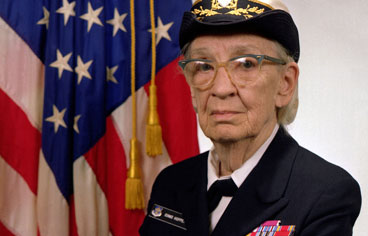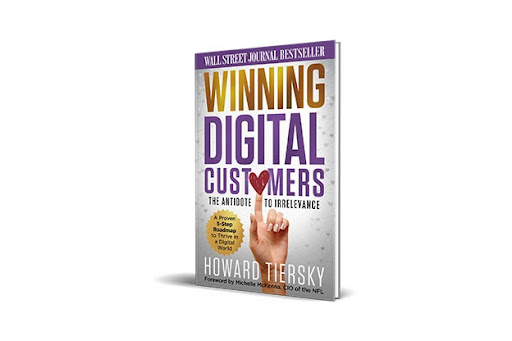Insights | By Howard Tiersky
The Mothers Of Our Digital World
Today’s digital world was created by innovators who were able to design, develop, and execute transformational ideas.
From the first programming language to machine-learning algorithms, many of the technologies that exist were either designed, developed, or implemented by women. In honor of Mother’s Day, let’s go over some of the most influential pioneers and modern women in tech.

GRACE HOPPER
U.S. Navy Rear Admiral Grace Hopper (a.k.a. Amazing Grace) was the woman behind COBOL–the first high-level programming language. Admiral Hopper also invented the first compiler which translates code into machine language and coined the terms “bug” and “debug” that programmers often use today.

ADA LOVELACE
Hailed as the “Prophet of the Computer Age,” Ada Lovelace is considered to be the world’s first computer programmer and created the world’s first computer algorithm. Her notes on how engines could be used to turn calculations into computations inspired the first modern computer in the 1940s.

HEDY LAMARR
Hedy was both a famous actress and a completely self-taught inventor. Her greatest invention, however, was the Secret Communication System–a frequency hopping device designed to send radio-guided torpedoes off course during the war–which served as the basis for the WiFi, GPS, and Bluetooth that we use today.

ANNIE EASLEY
Easley was the NASA scientist who developed and implemented the code that would later be used to develop batteries for hybrid cars. She was one of four African Americans to be hired in her lab and has served as inspiration to break down equal employment barriers. Her work in NASA’s Centaur rocket has served as the foundation for future space shuttle launches.

ELIZABETH FEINLER
Elizabeth ran the Network Information Center (NIC) in California which would later be known as the Original Search Engine. She was the woman behind the development of the original white- and yellow-pages as well as the .com, .net, .gov, etc. domain naming scheme we know and use today.

MARY WILKES
Mary was the programmer and logic designer behind the development of the LINC software–one of the earliest systems used to develop an interactive personal computer. Because of her work, she is considered to be the first person to ever own a computer at home.

ADELE GOLDBERG
Goldberg was a key member of the team at Xerox PARC responsible for building the Smalltalk-80 programming language which was used for the first prototypes of key GUI components we know today like windows, pointers, and menus. She was also the person who demonstrated the work of Xerox PARC to Steve Jobs, resulting in the vision for the first Macintosh and the first commercially available Graphical User Interface (GUI).

RADIA PERLMAN
Known as the “Mother of the Internet,” Radia developed the algorithm of the Spanning Tree Protocol (STP) which set the basic rules of internet traffic by changing the way networks would self-organize and transport data. Her work helped create the foundations of the internet we use today.

SHERYL SANDBERG
As one of Silicon Valley’s most successful women, Sandberg is the mind that allowed Facebook to generate billions of dollars in revenue. Her decision to position Facebook as a small business advertising tool propelled the company to even greater heights and helped inspire women in tech to achieve personal and professional growth.

SUSAN KARE
Kare is known for her UI work with Apple, Microsoft, Facebook, and Pinterest. Her “friendly” approach to graphic design and typography created some of her most iconic work such as Apple's early user interface, the command icons, trash can icon, as well as the cut and paste pointer designs.

SUSAN WOJCICKI
Wojcicki is the CEO of YouTube. She was behind the creation of Google AdWords, Google’s acquisition of YouTube, and the machine-learning technology that gives advertisers control over their ad placement and identifies questionable content for review and flagging.

It’s not always easy to drive innovation, but in my Wall Street Journal bestselling book, Winning Digital Customers: The Antidote to Irrelevance, I provide a simple five-step roadmap to drive a successful digital transformation within your organization. This is the methodology that I use to help Fortune 500 companies like Avis, ADP, Airbus, and Barnes & Noble Education. Get the first chapter for FREE NOW or purchase the book here.





